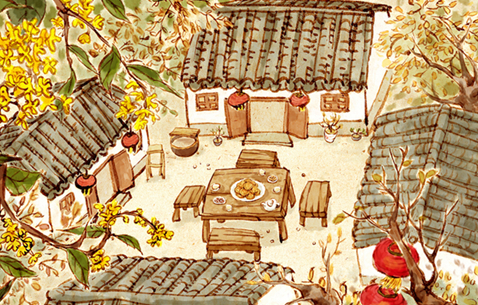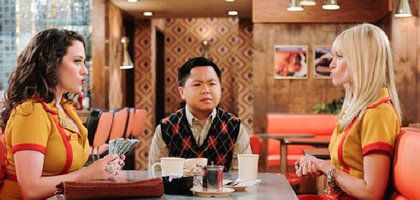|
ONE a year and three months. During all that time Lucie was never sure, from hour to hour, but that the Guillotine would strike off her husband's head next day. Every day, through the stony streets, the tumbrils now jolted heavily, filled with Condemned. Lovely girls; bright women, brown-haired, black-haired, and grey; youths; stalwart men and old; gentle born and peasant born; all red wine for La Guillotine, all daily brought into light from the dark cellars of the loathsome prisons, and carried to her through the street to slake her devouring thirst. Liberty, equality, fraternity, or death;--the last, much the easiest to bestow, O Guillotine!
If the suddenness of her calamity, and the whirling wheels of the time, had stunned the Doctor's daughter into awaiting the result in idle despair, it would but have been with her as it was with many. But, from the hour when she had taken the white head to her fresh young bosom in the garret of she had been true to her duties. She was truest to them in the season of trial, as all the quietly loyal and good will always be.
As soon as they were established in their new residence, and her father had entered on the routine of his avocations, she arranged the little household as exactly as if her husband had been there. Everything had its appointed place and its appointed time. Little Lucie she taught, as regularly, as if they had all been united in their English home. The slight devices with which she cheated herself into the show of a belief that they would soon be reunited-the little preparations for his speedy return, the setting aside of his chair and his books--these, and the solemn prayer at night for one dear prisoner especially, among the many unhappy souls in prison and the shadow of death--were almost the only outspoken reliefs of her heavy mind.
She did not greatly alter in appearance. The plain dark dresses, akin to mourning dresses, which she and her child wore, were as neat and as well attended to as the brighter clothes of happy days. She lost her colour, and the old and intent expression was a constant, not an occasional, thing; otherwise, she remained very pretty and comely. Sometimes, at night on kissing her father, she would burst into the grief she had repressed all day, and would say that her sole reliance, under Heaven, was on him. He always resolutely answered: `Nothing can happen to him without my knowledge, and I know that I can save him, Lucie.'
They had not made the round of their changed life many weeks, when her father said to her, on coming home one evening:
`My dear, there is an upper window in the prison, to which Charles can sometimes gain access at three in the afternoon. When he can get to it-which depends on many uncertainties and incidents-he might see you in the street, he thinks, if you stood in a certain place that I can show you. But you will not be able to see him, my poor child, and even if you could, it would be unsafe for you to make a sign of recognition.'
`O show me the place, my father, and I will go there everyday.'
From that time, in all weathers, she waited there two hours. As the clock struck two, she was there, and at four she turned resignedly away. When it was not too wet or inclement for her child to be with her, they went together; at other times she was alone; but she never missed a single day.
It was the dark and dirty corner of a small winding street. The hovel of a cutter of wood into lengths for burning, was the only house at that end; all else was wall. On the third day of her being there, he noticed her.
`Good day, citizeness.'
`Good day, citizen.'
This mode of address was now prescribed by decree. It had been established voluntarily some time ago, among the more thorough patriots; but, was now law for everybody.
`Walking here again, citizeness?'
`You see me, citizen!'
The wood-sawyer, who was a little man with a redundancy of gesture (he had once been a mender of roads), cast a glance at the prison, pointed at the prison, and putting his ten fingers before his face to represent bars, peeped through them jocosely.
`But it's not my business,' said he. And went on sawing his wood.
Next day he was looking out for her, and accosted her the moment she appeared.
`What? Walking here again, citizeness?'
`Yes, citizen.'
`Ah! A child too! Your mother, is it not, my little citizeness?'
`Do I say yes, mamma?' whispered little Lucie, drawing close to her.
`Yes, dearest.'
`Yes, citizen.'
`Ah! But it's not my business. My work is my business. See my saw! I call it my Little Guillotine. La, la, la; La, la, la! And off his head comes!'
The billet fell as he spoke, and he threw it into a basket.
`I call myself the Samson of the firewood guillotine. See here again! Loo, loo, loo; Loo, loo, loo! And off her head comes! Now, a child. Tickle, tickle; Pickle, pickle! And off its head comes. All the family!'
Lucie shuddered as he threw two more billets into his basket, but it was impossible to be there while the wood-sawyer was at work, and not be in his sight. Thenceforth, to secure his good will, she always spoke to him first, and often gave him drink-money, which he readily received.
He was an inquisitive fellow, and sometimes when she had quite forgotten him in gazing at the prison roof and grates, and in lifting her heart up to her husband, she would come to herself to find him looking at her, with his knee on his bench and his saw stopped in its work. `But it's not my business!' he would generally say at those times, and would briskly fall to his sawing again.
In all weathers, in the snow and frost of winter, in the bitter winds of spring, in the hot sunshine of summer, in the rains of autumn, and again in the snow and frost of winter, Lucie passed two hours of every day at this place; and every day on leaving it, she kissed the prison wall. Her husband saw her (so she learned from her father) it might be once in five or six times: it might be twice or thrice running: it might be, not for a week or a fortnight together. It was enough that he could and did see her when the chances served, and on that possibility she would have waited out the day, seven days a week.
These occupations brought her round to the December month, wherein her father walked among the terrors with a steady head. On a lightly-snowing afternoon she arrived at the usual corner. It was a day of some wild rejoicing, and a festival. She had seen the houses, as she came along, decorated with little pikes, and with little red caps stuck upon them; also, with tricoloured ribbons; also, with the standard inscription (tricoloured letters were the favourite), Republic One and Indivisible. Liberty, Equality, Fraternity, or Death!
The miserable shop of the wood-sawyer was so small, that its whole surface furnished very indifferent space for this legend. He had got somebody to scrawl it up for him, however, who had squeezed Death in with most inappropriate difficulty. On his house-top, he displayed pike and cap, as a good citizen must, and in a window he had stationed his saw inscribed as his `Little Sainte Guillotine'--for the great sharp female was by that time popularly canonised. His shop was shut and he was not there, which was a relief to Lucie, and left her quite alone.
But, he was not far off, for presently she heard a troubled movement and a shouting coming along, which filled her with fear. A moment afterwards, and a throng of people came pouring round the corner by the prison wall, in the midst of whom was the wood-sawyer hand in hand with The Vengeance. There could not be fewer than five hundred people, and they were dancing like five thousand demons. There was no other music than their own singing. They danced to the popular Revolution song, keeping a ferocious time that was like a gnashing of teeth in unison. Men and women danced together, women danced together, men danced together, as hazard had brought them together. At first, they were a mere storm of coarse red caps and coarse woollen rags; but, as they filled the place, and stopped to dance about Lucie, some ghastly apparition of a dance-figure gone raving mad arose among them. They advanced, retreated, struck at one another's hands, clutched at one another's heads, spun round alone, caught one another and spun round in pairs, until many of them dropped. While those were down, the rest linked hand in hand, and all spun round together: then the ring broke, and in separate rings of two and four they turned and turned until they all stopped at once, began again, struck, clutched, and tore, and then reversed the spin, and all spun round another way.
Suddenly they stopped again, paused, struck out the time afresh, formed into lines the width of the public way, and, with their heads low down and their hands high up, swooped screaming off. No fight could have been half so terrible as this dance. It was
so emphatically a fallen sport--a something, once innocent, delivered over to all devilry--a healthy pastime changed into a means of angering the blood, bewildering the senses, and steeling the heart. Such grace as was visible in it, made it the uglier, showing how warped and perverted all things good by nature were become. The maidenly bosom bared to this, the pretty almost-child's head thus distracted, the delicate foot mincing in this slough of blood and dirt, were types of the disjointed time.'
This was the Carmagnole. As it passed, leaving Lucie frightened and bewildered in the doorway of the wood-sawyer's house, the feathery snow fell as quietly and lay as white and soft, as if it had never been.
`O my father!' for he stood before her when she lifted up the eyes she had momentarily darkened with her hand; `such a cruel, bad sight.'
`I know, my dear, I know. I have seen it many times. Don't be frightened! Not one of them would harm you.'
`I am not frightened for myself, my father. But when I think of my husband, and the mercies of these people---'
`We will set him above their mercies very soon. I left him climbing to the window, and I came to tell you. There is no one here to see. You may kiss your hand towards that highest shelving roof.'
`I do so, father, and I send him my Soul with it!'
`You cannot see him, my poor dear?'
`No, father,' said, Lucie, yearning and weeping as she kissed her hand, `no.
A footstep in the snow. Madame Defarge. `I salute you, citizeness,' from the Doctor. `I salute you, citizen.' This in passing. Nothing more. Madame Defarge gone, like a shadow over the white road.
`Give me your arm, my love. Pass from here with an air of cheerfulness and courage, for his sake. That was well done;' they had left the spot; `it shall not be in vain. Charles is summoned for to-morrow.'
`For to-morrow!'
`There is no time to lose. I am well prepared, but there are precautions to be taken, that could not be taken until he was actually summoned before the Tribunal. He has not received the notice yet, but I know that he will presently be summoned for to-morrow, and removed to the Conciergerie; I have timely information. You are not afraid?'
She could scarcely answer, `I trust in you.'
`Do so, implicitly. Your suspense is nearly ended, my darling; he shall be restored to you within a few hours; I have encompassed him with every protection. I must see Lorry.'
He stopped. There was a heavy lumbering of wheels within hearing. They both knew too well what it meant. One. Two. Three. Three tumbrils faring away with their dread loads over the hushing snow.
`I must see Lorry,' the Doctor repeated, turning her another way.
The staunch old gentleman was still in his trust; had never left it. He and his books were in frequent requisition as to property confiscated and made national. What he could save for the owners, he saved. No better man living to hold fast by what Tellson's had in keeping, and to hold his peace.
A murky red and yellow sky, and a rising mist from the Seine, denoted the approach of darkness. It was almost dark when they arrived at the Bank. The stately residence of Monseigneur was altogether blighted and deserted. Above a heap of dust and
ashes in the court, ran the letters: National Property. Republic One and Indivisible. Liberty, Equality, Fraternity, or Death!
Who could that be with Mr. Lorry--the Owner of the riding-coat upon the chair--who must not be seen? From whom newly arrived, did he come out, agitated and surprised, to take his favourite in his arms? To whom did he appear to repeat her faltering words, when, raising his voice and turning his head towards the door of the room from which he had issued, he said: `Removed to the Conciergerie, and summoned for to-morrow?' 一年零三个月。在这段时间里露西无时无刻不感到断头台明天就会砍掉她丈夫的头。囚车每天都载满了死刑犯,颠簸着沉重地驰过街道。可爱的姑娘,漂亮的妇女;棕色头发的,黑色头发的,花白头发的;年轻的人,壮实的人,衰老的人;贵族出身的,农民出身的,都是断头台小姐的一杯杯红色的美酒,都是每天从监狱可憎的黑暗地窖里取出、来到阳光下、通过街道给小姐送去消解她的馋渴的美酒。自由平等博爱或死亡——最后一项可要容易办到得多:啊,断头台!
若是那突然的横祸和时间的飞轮把医生的女儿吓了个目瞪口呆,使她只好怀着失望静待结果到来的话,她的遭遇也不过是和千百万人的遭遇相同。但是,自从她在圣安托万区阁楼里把那白发的头搂到自己青春的胸前以来,她一向忠实于自己的职责,在受到考验的时候尤其如此,正如一切沉默忠诚善良的人一样。
在她们搬进了新居、父亲开始了常规医疗工作之后,她就把她那小小的家庭安排得井井有条,仿佛她丈夫就在身边。一切都有固定的地点和固定的时间。她跟在英国家里全家团聚时一样按时给小露西上课。她用一些小花样来欺骗自己,装出相信全家即将团聚的样子——她为丈夫早日回家做些小准备,给他准备了专用的椅子,把它跟他的书放在一边。除此之外,她还专为一个亲爱的囚徒庄严祷告,那人跟许多不幸的人一起生活在监牢里死亡的阴影之下。那几乎是她所能用言语倾诉、宣泄自己沉重的心曲的唯一的途径。
她的外表变化不大。她跟孩子都穿类似丧服的朴素的深色服装,却全都跟欢乐日子里的彩色服装一样,收拾得整整齐齐。她鲜活的脸色没有了,以前那专注的神情经常出现而不再是偶然一现了。除此之外,她仍然很漂亮,很美丽。有时她在晚上亲吻她父亲时会哭出声来,泛溢出全天压抑的忧伤,而且说她在上天之下唯一的依靠就是他了。他总是坚定地说:“他遭到的变化没有不让我知道的,我知道我能救他,露西。”
他们的生活改变了,几个礼拜后的一天晚上,父亲一回家就告诉她:
“我亲爱的,监狱里有一个高层的窗户,下午三点钟查尔斯有时可能到那儿去。若是你站在街上我告诉你的那个地方,而他又到了窗口,他认为他有可能看见你——但他能否到窗口,却得由许多偶然因素决定。不过你是看不见他的,可怜的孩子,即使看见了,也不能有所表示,因为那对你不安全。”
“啊,告评我地点吧,父亲,我每天都去。”
从此以后,不论什么天气,她总要到那儿去等两个钟头。时钟一敲两点她已站在那儿了,到了四点才断了念头离开。若是天气不太潮湿或不太恶劣,能带孩子,她便带了孩子去。平时她一个人去,但是从没有错过一天。
那是一条弯曲小街的一个黑暗肮脏的角落。那里唯一的房屋是一个把柴锯成短段便于烧壁炉的工人的小棚屋,此外便只有墙壁。她去的第三天,那人便注意到了她。
“日安,女公民。”
“日安,公民。”
这在那时是法定的招呼形式。不久前在较为彻底的爱国者之间不自觉形成的这种模式,现在已成了人人必须遵守的法律。
“又在这儿散步了么,女公民?”
“你看见的,公民!”
锯木工是个小个子,手势特别多(他以前干过补路工)。他望了望监狱,用手指了指,叉开十个指头放到脸前,代表铁栏杆,装出窥看的滑稽样子。
“可这跟我没有关系,”他说。他又去锯木柴了。
第二天,他探出头来找她,见她一出现就跟她打招呼。
“怎么、又到这儿来散步了么,女公民?”
“是的,公民。”
“啊!还有个孩子!她是你妈妈么,小女公民?”
“我要回答是的么,妈妈?”小露西靠近她,低声问。
“回答是的,乖乖。”
“是的,公民。”
“啊!不过,这可没有我的事。我的事是锯木头。看见我的锯子了么?我把它叫作我的断头台。啦,啦,啦;啦,啦,啦!他的脑袋掉下来了!”
他说着话,木柴掉了下来,他把它扔到篮子里。
“我把我自己叫作木柴断头台的参孙。又看这儿!噜,噜,噜;噜,噜,噜!这个女人的脑袋掉下来了!现在,是个小孩。唧咕,唧咕;噼咕,噼咕!小孩脑袋也掉下来了。满门抄斩!”
他又把两段木柴扔进篮子,露西打了个寒颤。要想在锯木工工作时到那儿去而不被他看见,是不可能的。从那以后为了取得他的好感,她总是先跟他说话,还常常给他点酒钱,他也立即收下。
这人好管闲事,有时在她凝望着监狱的屋顶和铁窗、心儿飞向丈夫而忘了那人时,她会立即回过神来,却见那人一条腿跪在长凳上望着她,手中忘了拉锯。“可这不关我的事!”那时他又往往说,马上又拉起锯来。
无论在什么天气——在冬天的霜雪里,春天的寒风里,夏天炙热的阳光里,秋天绵绵的细雨里,然后又是冬天的霜雪里,露西每天都要在这里度过两小时,每天离开时都要亲吻监狱的墙壁。她去六次,她的丈夫也许能看到她一次(她的父亲这样告诉她),有时也可能连续两天都能看到,有时也可能一两个礼拜都看不到。只要他有机会看见她,而且碰巧果然看见那一种可能性她情愿一周七天,每天去站一整天。
这样的活动又把她带到了十二月,她的父亲仍然在恐怖之中昂首阔步地走着。一个微雪的下午,她来到她总要去的角落。那是一个疯狂的喜庆日子。她来时见到房屋点缀了刺刀,刺刀顶上点缀了红便帽,屋上还挂着三色彩带,还有标准的口号(字母也常用三个颜色书写):统一不可分割的共和国,自由平等博爱或死亡!
锯木工那可怜的铺面太小,整个门面也塞不下这条标语。不过他还是找了个人给他歪歪扭扭涂上了,写到“死亡”好不容易才挤了进去。他在屋顶插了枪和便帽,那是好公民必办的事。他还把锯子摆在一个窗户里,标上“小圣徒断头台”,那时那伟大锋利的女性正受到普遍的崇敬。劈柴店关了门,主人也不在,露西一个人。她松了一口气。
但是那人离得并不远,因为她马上就听见一阵骚动和一阵叫喊传来,心里不禁充满了恐惧。顷刻间,一大群人从监狱墙角转出,锯木工也在其中,他跟复仇女神手牵着手。他们的人数不少于五百,可跳起舞来倒像有五千个妖魔鬼怪。除了自己的歌声他们别无音乐,只能踏着流行的革命歌曲的节拍跳着,节拍踏得很凶狠,仿佛是统一了步调在咬牙切齿。男人跟女人跳,女人跟女人跳,男人跟男人跳,碰见谁就跟谁跳。最初,他们只不过是一片粗糙的红便帽和粗糙的破毛料的风暴,但到他们挤满了那地方、停止了前进在露西身边跳的时候,便变成了一片发着呓语的疯狂可怖的幢幢鬼影。他们时而前进,时而后退,彼此叭叭地击掌,彼此揪抓着脑袋,单人旋转,双人旋转,直转到有的人跌倒在地。这时没有倒下的又手拉手围成圈子旋转,圈子破了,又捉对儿旋转,四个人旋转,直转到突然停步。于是重新开始,又是击掌,又是揪脑袋,又是拉手,扯来扯去,反方向旋转,再牵成大圈反方向旋转。突然站住,稍停,重新踏起节拍,排成街道一样宽的长排,低下头,举起手,尖叫着向前飞扑。就是厮杀也不及这种舞蹈的一半可怖。这是一种堕落得无以复加的游戏。当初原很纯洁,后来却具有了这种鬼魅的形象。一种健康的娱乐变作了促使血液狂奔、知觉混乱、心肠狠毒的手段。依稀可见的几分优美使得这种舞蹈益发丑恶了,它表现出一切本质善良的东西已经遭到多么严重的扭曲与败坏。舞蹈中露出了少女的胸脯,几乎还未成年的美丽却疯狂的头、精巧的脚在血污的泥泞中蹒跚踏步。这一切都是脱了节的时代的象征。
这就是卡尔马尼奥拉舞。舞蹈过去了,只留下露西心惊胆战、不知所措地站在锯木工屋前。轻盈的雪片悄悄地飞着,堆积得又白又柔软,仿佛从来就没出现过这场舞蹈。
“啊,父亲!”她放下捂住眼睛的手,发现他站在面前,“多么残酷丑恶的景象。”
“我知道,亲爱的,我知道。我见过许多次了。别害怕!他们谁都不会伤害你的。”
“我并不为自己害怕,父亲,可我一想到我的丈夫,他还要听凭这些人摆布就——”
“我们很快就可以使他不受他们摆布了。我离开他时,他正往窗户爬去,我便来告诉你。这儿没有人看见。你可以对那最高的一个斜屋顶飞一个吻去。”
“我要飞吻,父亲,我把灵魂也一起飞给他。”
“你看不见他么,可怜的孩子?”
“看不见,”露西说,急得直哭,吻着他的手,“看不见。”
雪地里有脚步声,是德伐日太太。“向你致敬,女公民,”医生说。“向你致敬,公民。”她信口回答。再也没有话。德伐日太太走了,像一道阴影掠过白色的路。
“把手臂给我,亲爱的。为了他的缘故,摆出欢欢喜喜、勇敢坚定的神气从这儿走过去。走得好。”他们已走过了那地点。“不会不起作用的。明天就要审讯查尔斯了。”
“明天!”
“不能浪费时间了。我已做好了准备,还有些预防措施,必须在他已经到庭时才能采用。他还没有接到通知,但我知道马上就会通知他的。明天审讯,同时把他转移到巴黎裁判所的附属监狱。我的情报很及时。你不会害怕吧?”
她几乎回答不出话来,“我相信你。”
“绝对相信我吧!你提心吊胆的日子快要结束了,亲爱的。审讯结束后几个小时就会把
他放回你身边的。我已经把他保护得严严实实。我得看罗瑞去。”
他却站住了。他们听见了沉重的车轮声,非常明白那是什么意思。一部,两部,三部。三部死囚车载着可怕的货物在寂寂的雪地上走掉了。
“我得看罗瑞去,”医生带了她走向另一条路,重复道。
那可靠的老人还坚守着他的岗位,没有离开一步。许多财产在充公或收归国有时常常要咨询他和他的帐册。凡能为原主保留的,他都设法保留。台尔森银行代管的财业有多少,世界上没有人比他知道得更清楚,但他守口如瓶。
暗红与黄色的彩霞以及在塞纳河上升起的雾气表明夜已来临。他到达银行时天已几乎黑净。当年宫廷显贵那庄严的宅第已破败不堪,很少有人居住。在庭院里的—堆尘土和灰烬之上是几个大字:国家财产。统一不可分割的共和国,自由平等博爱或死亡。
跟罗瑞先生一起的是谁呢?椅子上那骑马装是谁的?——那人不肯叫人看见。罗瑞先生刚从谁那儿激动而吃惊地跑了出来,把他心爱的人儿搂到怀里?他转回头提高了嗓子往他刚才出来的屋里说道,“转移到巴黎裁判所附属监狱,明天审讯。”那是她刚才结结巴巴说出的话,他又是在向谁重复呢? |








